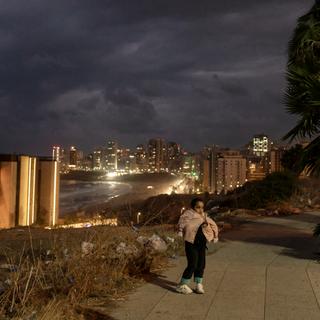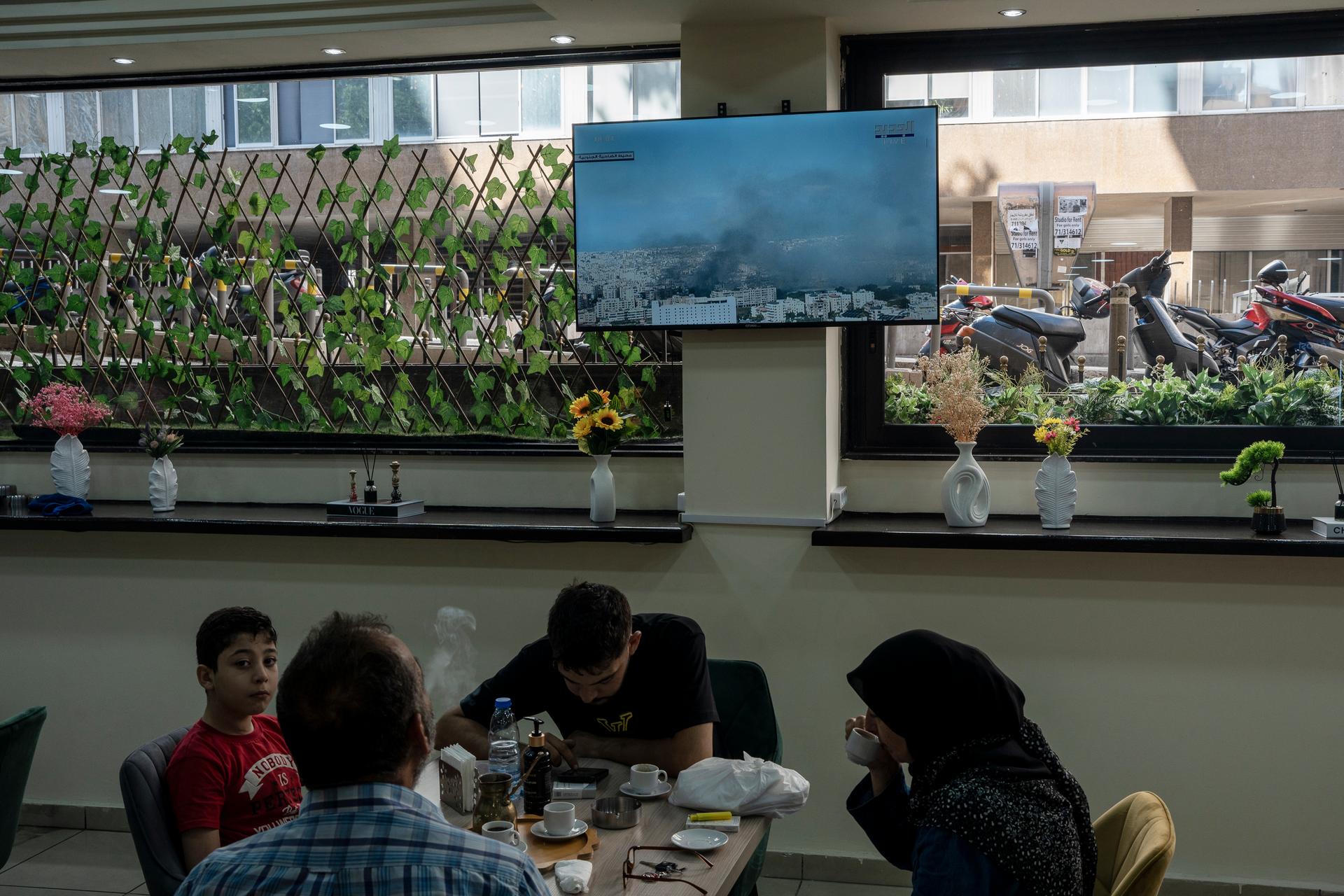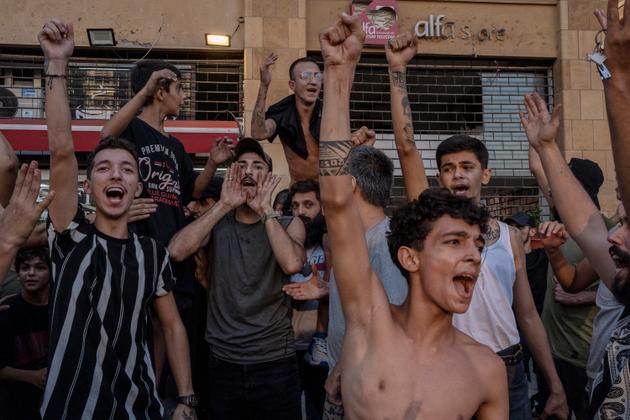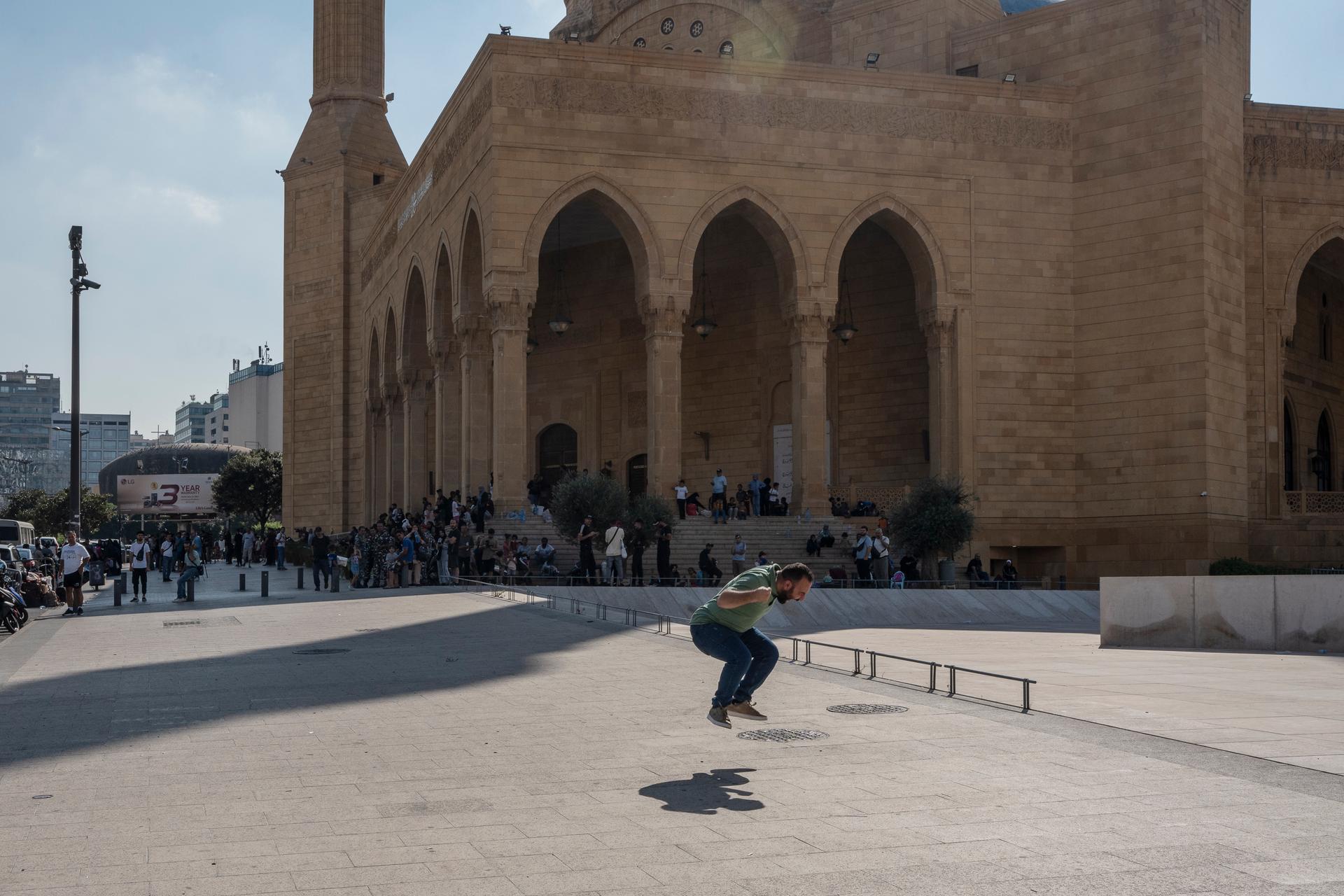


The war in Lebanon through the lens of a Le Monde photographer: 'People are traumatized by the bombings and the pager attack'
GalleryOn September 24, photographer Adrienne Surprenant landed in Beirut. Three days later, an Israeli strike killed Hezbollah leader Hassan Nasrallah. Surprenant tells us about her work for Le Monde in Lebanon and the challenges posed by the conflict.
Born in 1992, Adrienne Surprenant has been a press photographer for 10 years. Originally from Canada, she now lives in France and regularly works in conflict zones, including Ukraine, the Central African Republic and Sudan. She has collaborated with Le Monde on several occasions, most recently covering the situation in Lebanon from September 24 to October 11.
What was it like to leave for Lebanon?
I was eating in a canteen on the way to Grand-Popo, Benin, where I was on a long-term project about climate change, and had just arranged a series of important appointments when I got the call from [Le Monde's] photo desk. I was already following the news in the Middle East constantly, so I didn't hesitate long before leaving.
In fact, in my head, I was already in Lebanon. I flew as soon as I could to Paris, where I spent four hours taking delivery of the security equipment provided by the newspaper (bulletproof vest, ballistic helmet, cash) and packing my bags. That same evening, I was in Beirut.
What happened when you arrived in the country?
I met up with Hélène Sallon, the paper's correspondent in Lebanon, to take stock of the situation, and then I went to the Ministry of Information, where I had to fill out a lot of paperwork and wait for two hours, in the company of a group of international journalists, before getting the work permit issued by the government.
As we were planning to go to the south of the country in the following days, I also had to apply to the army for a permit to work in this area, which has a special status. Eventually, the news kept us in Beirut longer: the Hezbollah leader Hassan Nasrallah was killed in a bombing over the Lebanese capital.



What happens when you take your camera into the field after a bombing raid, for example?
In Beirut, you can hear the bangs in the distance, and you're quickly kept up to date via social media, so it wasn't difficult to find out when and where the bombings were taking place. Whenever possible, I work in [tandem] with another photographer, Ali Khara, who lives in Lebanon.
Between the two of us, we have a much better assessment of the risks, and we decide together whether to go to a location or not. Getting around Beirut at the moment is very complicated. The city is a giant traffic jam, even in normal times. Now there are also people fleeing their neighborhoods after every bombing raid, and the streets are clogged with the vehicles of the many refugees from the south of the country who have come to the capital to escape the Israeli army's operations. We found an efficient cab driver with whom we worked daily.
You have 48.52% of this article left to read. The rest is for subscribers only.
